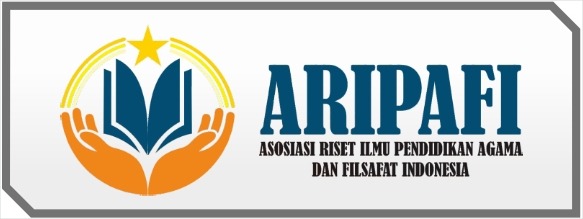Reconfiguring Religious Authority and Ethical Governance in Islamic Political Thought: A Comparative Literature Review
DOI:
https://doi.org/10.61194/ijis.v2i3.605Keywords:
Islamic Political Thought, Religious Authority, Gender Justice, Democratic Governance, Islamic Reform, Postcolonial Muslim States, Islamic MovementsAbstract
The Islamic political thought has long served as a foundational discourse for governance in Muslim-majority societies, continuously adapting to evolving historical, theological, and socio-political conditions. This narrative review investigates the development and transformation of Islamic political ideologies, from classical treatises to contemporary reformist and feminist interpretations. Utilizing a structured literature search through academic databases such as Scopus and Google Scholar, the review selected peer-reviewed sources focused on themes of Islamic governance, religious authority, gender justice, and regional variations. The findings reveal that classical texts such as the Siyasatnama and the Muqaddimah continue to inform present-day governance through concepts like justice and social solidarity. Shi'a political frameworks emphasize divine sovereignty through clerical authority, contrasting with more decentralized Sunni models. Reformist thinkers like Jamal al-Din al-Afghani and Fazlur Rahman advocate for contextual reinterpretation and democratic engagement. The influence of systemic factors—including colonial legacies, economic crises, and cultural diplomacy—demonstrates both the resilience and the adaptability of Islamic political thought. Feminist contributions and grassroots activism further enrich the discourse, emphasizing inclusivity and civic engagement. The review concludes that overcoming governance challenges and ideological rigidity requires educational reform, inclusive policy-making, and expanded theological dialogue. These steps are essential for ensuring that Islamic political thought remains relevant and impactful in contemporary governance. The study highlights the need for future research on digital political engagement and comparative models across global Muslim societies.
References
Azlan, M. (2022). Reformist currents in modern Islamic political thought: From Afghani to post-colonial activism. Journal of Islamic Reform and Governance, 14(1), 41–59.
Buehler, M. (2013). Revisiting the Arab Spring: The limits of Islamist political success. Middle East Journal, 67(1), 55–70.
Capezzone, P. (2020). Sunni constitutionalism and political theory: Pluralism and consensus in Islamic governance. Islamic Legal Studies Review, 12(2), 88–105.
Cemgil, C., & Hoffmann, C. (2016). The “new Turkey”: Challenging neoliberalism and authoritarianism. Southeast European and Black Sea Studies, 16(4), 611–627.
Chiu, Y. C. (2021). Cultural adaptation of Islam in China: Confucian-Islamic syncretism among Hui Muslims. Journal of Muslim Minority Affairs, 41(3), 432–451.
Christensen, D. (2013). Islamic feminism and gender justice in post-Arab Spring societies. Gender, Religion and Politics, 9(3), 311–327.
Fitouri, L., & Saleh, S. (2024). Transparency and justice in post-revolution Islamic governance: Institutional challenges. Global Journal of Islamic Policy Studies, 6(1), 73–91.
Ghiabi, M., Afshar, H., & Delshad, S. (2018). Shi’a governance and authority in modern Iran: The evolving structure of clerical leadership. Iranian Studies Review, 22(2), 95–116.
Hellmich, C. (2014). Towards a moral Islamic political theory: Fazlur Rahman’s ijtihad and democratic reform. Contemporary Islamic Political Thought, 5(1), 17–33.
Hutchinson, C., Naji, Y., & Salim, A. (2014). Justice and legitimacy in Islamic political systems: Revisiting classical foundations. Middle Eastern Law and Governance, 6(2), 149–164.
Islam, M. (2024). The politics of moral governance: Contemporary challenges in Muslim democracies. Journal of Comparative Islamic Political Analysis, 10(1), 21–44.
Kaminski, M. (2021). Islamic constitutionalism and democratic legitimacy: Theoretical debates. Islamic Governance Quarterly, 8(3), 88–109.
Käsehage, N. (2021). Islamic governance in the age of global democracy. Politics, Religion & Ideology, 22(4), 427–446.
Khair, R. (2020). Female scholarship in Islamic jurisprudence: Contemporary challenges and possibilities. Muslim Women’s Studies Review, 3(1), 67–83.
Khaleel, I., & Avdukić, A. (2024). Al-Mawardi and Al-Ghazali revisited: Ethical roots of Islamic political thought. The Muslim World Review, 45(2), 101–123.
Latifah, N., Chen, Q., & Rizky, D. (2023). Localization of Islamic political ethics: A study of Hui Muslims in China and Central Asia. Asian Studies in Islam, 13(4), 299–317.
Mangini, A. (2018). Revisiting the Siyasatnama: Justice and statecraft in classical Persian political thought. Journal of Islamic Historical Studies, 11(2), 147–165.
Mavani, H. (2013). Religious authority and political legitimacy in Shi’a Islam: From Khumayni to post-revolution Iran. Middle East Journal of Politics, 4(1), 55–78.
Mohammad, W. (2023). The role of AI Waifu characters in supporting Weaboos with post-traumatic relationship syndrome (PTRS). Sinergi International Journal of Education, 1(2), 77–96.
Rusyidi, U. (2023). Islam and state governance in Southeast Asia: Comparative insights from Indonesia and Malaysia. Journal of Islamic Regional Studies, 9(1), 58–74.
Roy, O. (2013). The transformation of the Islamic political imagination. Muslim World Today, 7(3), 231–248.
Sadeghi-Boroujerdi, E. (2014). Iranian reformism and the critique of the state: The politics of Hajjarian. Politics & Religion, 7(1), 88–104.
Scharbrodt, O. (2021). Clerical authority and political theology in contemporary Shi’a Islam. Islamic Studies Journal, 18(3), 201–222.
Sela, A. (2015). Religious politics in Egypt after the Arab Spring. Middle Eastern Political Review, 10(4), 322–340.
Tavassoli, K., & Teo, A. (2021). Feminism, political Islam, and gender-inclusive governance: New directions in Islamic thought. Gender & Politics in Muslim Societies, 6(2), 119–137.
Wibowo, A., Zain, M., & Husna, L. (2023). Revisiting classical governance in Islamic political institutions: The legacy of Al-Mawardi. Journal of Islamic Civilization and Politics, 15(1), 33–50.






